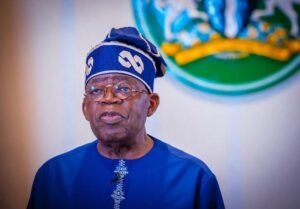Adoption of Mother Tongue in Primary Schools: Expectations of Educators and Concerned Parents from Federal Government

Akeem Alao
Fafunwa strongly asserted that the colonial pattern of education has robbed the African child of inventiveness, originality and creativity, since they are being forced to think in English instead of in Yoruba, Hausa, Igbo or any other Nigerian language.
The eminent scholar further emphasized not only the teaching of the mother tongue in schools, but also its use as the medium of instruction in teaching the primary school curriculum.
According to Fafunwa, if adopted from the primary school level, it will facilitate understanding among the pupils in the classroom, and later in life, they will be able to employ their education more meaningfully and effectively.
But the mother tongue has suffered setbacks because of the erroneous mindset that it has no relevance in teaching and learning.
Nigerian educators are elated at the good news that the federal government has approved the adoption of mothertongue as the medium of instruction in primary schools across the nation.
Some select seasoned educators and concerned parents who spoke to this correspondent commended the federal government. They also pointed out some challenges that may hinder the successful implementation of the policy. Meanwhile, they proffered some solutions that could help the implementation of the policy.
According to a Lagos-based mother and educator, Olaitan Wahab, adopting the mother tongue in the primary is a good idea. She, however, maintained that it might be difficult to implement, considering the linguistic status of most of the pupils, especially those in urban areas.
The seasoned educator stated that such a policy could only function well in rural areas.
“I believe it would facilitate learning and keep us more grounded in our mother tongue. But it might also be difficult to adopt except for rural areas where it will be most effective,” Wahab said.
“Nigeria has over 200 languages and because different cultures and ethnic groups keep moving to different parts of the country, how effective would it be for them to learn in another man’s language?” she noted.
Wahab pointed out that the challenges are quite many, as Nigeria has become a westernized country.
“Some children cannot even speak their parents’ languages. How do you want these children to learn using the languages their parents scorn?
We must first return to the roots of our culture before this can happen,” she said.
While commending the brains behind the new pedagogic policy, the Head of the Humanities Department at Landmark College, Ikorodu , Mr Timothy Adegunle, a graduate of English from the University of Ibadan, said it was the right step in the right direction.
The teacher of the English Language and Literature-in-English stated, “I believe that the recent move on the adoption of mother tongue as the medium of knowledge transfer from the teacher to the pupils in our primary schools is the right step in the right direction, and to say it has been long awaited is an understatement.”
The language expert supports the policy, hinging it on several fundamental factors.
According to Adegunle, the new medium of instruction will place both the teachers and the learners on the same page or level in the “use of a common language of mutual intelligibility to cross-fertilize ideas on the subject matter of the topic”.
“This will facilitate teaching and learning because the teacher would have integrated all terms and concepts as well as the steps, process and procedures into the language of the learners,” Adegunle argued.
He stated further, “Understanding will be greatly enhanced. Interest will be better stimulated; reasoning will be sharpened and ultimately, genuine and healthy intellectual rivalry resulting in excellent performance will be achieved
“Furthermore, not only the teachers and pupils will be on the same page but all students will have a level-playing ground to learn, unlearn and relearn as well as undertake assessments without any undue advantage of the foreign language which has already placed some pupils at an edge above others in the same class.”
Adegunle also argued that the use of the mother tongue will activate the growth, popularity or acceptability of the various local languages to be used in different parts of the country.
“This, more than the NYSC, will unite the various ethnic nationalities in our pluralistic geographical territory called Nigeria.
“This becomes practical as a result of our inter-tribal heterogeneous mixtures of over 250 indigenous languages. It’s obvious that both major and minor ethnic languages would benefit from this development. The hatred and mental addiction to a foreign language at the relegating expense of the native languages will end,” he said.
He, however, stated that the major challenge is the teething problem of scarcity of teachers to implement the programme at the kick-off stage.
“Given the fact that most of the indigenous languages especially the minority languages with their dialects are already at a comatose point of extinction, many teachers are not versed in these local languages, let alone using it as a medium of teaching concepts in subjects other than the native language as a subject,” he observed.
According to him, to tackle this challenge, two steps among others have to be taken.
“One, a demographic delineation of languages to be used in different localities must be done. Two, motivational steps must be taken to stimulate the interests of teachers to consciously and conscientiously work in the direction of adaptation of the knowledge to be transferred in the various primary schools subjects to the dominant or prevalent dialect in use at the various primary schools across the country,” Adegunle stated.
He added, “The statistics in the various ministries of education across the states and the 774 local governments as well as the officers should stand up to the task and ensure its successful implementation.”
“We have encouraging results from countries who have successfully entrenched this policy thrust in their education industry and today. They are no longer in the same stage of development and categorisation as us. While we remain a third-world developing country, some of them already left us in the group with its stagnating if not retrogressive implications,” he concluded.
Also reacting to the new policy, an Ogun-based parent, Engr Ademola Adegoke, applauded the initiative, asserting that learning will be effective if done in the mother tongue. He believes strongly that it will enable the pupils to participate actively and contribute meaningfully in the classroom.
“It is the first language any child will hear parents and people around them speak,” he said.
“Most parents do have a better command of their mother tongue than the English language, and it’s easier to explain things to their children in their native language,” he argued.
He maintained further that “the English language is bankrupt of words to describe many concepts related to our culture. So, it becomes difficult to explain a lot of things to them.”
He added that most parents believe that “being able to speak English is a show of affluence.”
speaking about the ways of making the policy more effective, Adegoke suggested the introduction of result-oriented teaching, provision of necessary materials for the teachers, organization of training and employment of more qualified teachers.
While contributing, a teacher at one of the Lagos State primary schools, Mr Shittu Rasaq Kolade, commended the federal government for introducing the policy. He maintained that such a policy will make learning easier for the pupils.
“Yes, it will promote teaching and learning.
Basically, being Africans (Nigerians), we learn faster when information is passed in our mother tongue,” he said.
Kolade stated that the mother tongue will help to preserve our cultural heritage and identity.
On the challenges that may likely confront the policy, he highlighted inadequate teachers, especially language specialists, as well as experts in subjects such as mathematics, English and other science-oriented ones.
While suggesting solutions to the challenges, Kolade maintained that the federal government should employ adequate mother tongue specialists with good remuneration.
“Priority should be given to the teaching of native languages just as mathematics, English and other compulsory subjects.
“WAEC and JAMB examining bodies must make them compulsory subjects,” he concluded.
Also part of the discussion, the Principal of Kith and Kin Educational Schools, Mr Julius Oregbesan, stated that teaching the pupils in their native languages promotes learning.
The seasoned teacher with about 26 years of teaching experience, defines mother tongue education as a form of teaching and learning experience that “uses the language or languages that children are most familiar with to help them learn”.
According to him, this is usually the language that children speak at home with their families.
“The mother tongue does not have to be the language spoken by the mother. Children can and often do speak more than one or even two languages at home,” he stated.
He added that “Children learn better and faster in a language they can understand (preventing delays in learning). They enjoy school more, and they feel more at home. Pupils tend to show increased self-esteem. Parents’ participation will also increase.”
In his own opinion, major challenges with this policy include scarcity of instructional materials, lack of training for teachers, insufficient funds and poor remuneration.
“The challenges could be tackled by the government. They have to ensure that the teachers are well remunerated.
“Training and workshops should be organized for the teachers. Besides, there should be an adequate supply of instructional materials,” Oregbesan concluded.









